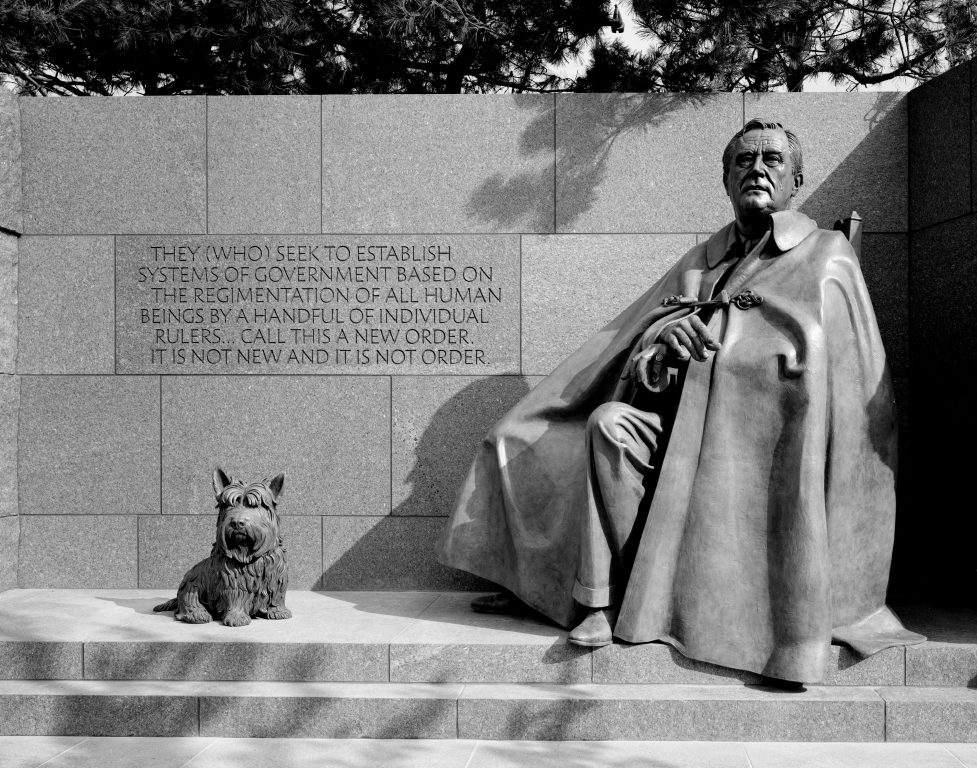Democrats Relaunch ‘Economic Bill of Rights’
Resolution went nowhere in Legislature but now a statewide campaign for fall elections.
Lawmakers and community activists joined forces Monday to re-energize a year-old campaign for broader economic access and equality in Wisconsin.
“True freedom cannot exist without economic security and independence,” said Rep. Kristina Shelton (D-Green Bay) at a news conference in the state Assembly chamber to relaunch a resolution endorsing an Economic Justice Bill of Rights.
The two representatives, along with Sens. Melissa Agard (D-Madison) and Chris Larson (D-Milwaukee), introduced the measure in March 2021 as AJR-24. It got nowhere in its first year, like the vast majority of resolutions authored by Democrats in the Republican-controlled state Legislature.
Re-introduced as AJR-149, its fate is no more promising now: The GOP leaders of both the Assembly and the state Senate have adjourned their regular floor sessions for the year, with no plans to take up more legislation before the November election.
The purpose for Monday’s event, however, was to draw attention to the underlying principles that the resolution embodies and to inspire Wisconsin residents who share those views to take up the broader campaign of advancing them, Shelton said.
“We’re asking people to join us, and we’re going to mobilize those folks to continue to take action,” Shelton said. From the Capitol to local city councils, school boards and county boards, “there are ways that local elections can also uphold this bill of rights,” she added.
The principles are broadly popular, advocates say.
“I don’t know if there’s any person I’ve talked to that doesn’t believe that people should have housing, or a job that covers the basics, or that when people need child care they should have access to it — affordable, safe child care so they can get back into the workforce if they choose to,” Shelton said in an interview.
“These are things that guide our legislative and policy work. But these are also the values that I’ve heard from my own constituents.”
Speaking at the news conference, Angela Lang, executive director of the Black Leaders Organizing for Communities (BLOC) in Milwaukee, said the principles outlined in the resolution speak to other issues, such as public safety.
“There has been a lot of conversation, especially as of late, in the last couple of years around what safety is and what it is not,” Lang said. “If we actually want to be serious as a state and actually work towards thriving communities, we need to make sure that we’re attacking the root causes of crime and leading us to a safer place.” Those include economic security and a stable economy in general, access to affordable health care and mental health resources, she added.
“The legislation that our community needs and wants looks like, frankly, what Wisconsinites deserve,” Lang said. “Wisconsinites deserve a government that works to protect our interests instead of the interests of corporations.”
Shelton says she and Hong, both first-term representatives, began discussing those ideas when they were first running for office in 2020.
“We felt like we needed a very clear framework for how to communicate [our] values,” Shelton says. University of Wisconsin-Green Bay historian Harvey Kaye, who has written on President Franklin D. Roosevelt’s embrace of an economic bill of rights during World War II, suggested the policy framework to Shelton during her campaign. She says it meshed with what she was hearing “while I was on the campaign trail talking to voters.”
Along with Agard and Larson, Hong and Shelton first introduced the resolution “to have clarity for ourselves — both in the building for legislation and for our colleagues as well in the state Capitol — but also for coordination with community groups and grassroots organizers and activists.”
Feedback from some of those groups led to revisions, and Shelton said the lawmakers plan to relaunch it annually. One reason for that “is to put it at the forefront of our work over and over again,” she says. Another is to help focus ongoing dialogue with other lawmakers as well as community supporters.
And it aims to show the stakes for the upcoming fall election, which “are incredibly high,” Shelton says, in the face of attacks on protections for LGBTQ people, transgender youth, and teachers over how the history of racism in the U.S. is taught.
“We believe that centering this, the Bill of Rights, will help people to understand how these issues are connected to one another,” she says. “These are not entitlements, these are not giveaways, this isn’t welfare — these are rights that everyone is afforded to in the state. And so absolutely, I think people are aware of what we’re facing, and now is the time to mobilize to get ready for November.”
The difference is that “our economic laws are made by people,” she says. “We can create new laws and new policy that centers the rights outlined in the Economic Justice Bill of Rights.”
Less government doesn’t necessarily mean more freedom, she adds.
“People need to remember that freedom doesn’t come in the absence of government,” says Shelton. “Government plays a critical and important role in upholding freedom, because people can’t truly be free if their economic security is in jeopardy or if they can’t truly be independent. So my belief is that while I’m here working in government, I should put government to work for the people. And that means working to create policy and a vision that upholds people’s human rights.”
Text of the proposed Economic Justice Bill of Rights
… Whereas, we declare that Bill of Rights includes the following:
- An equitable, living income and livelihood;
- A union, public or private, and collective bargaining;
- Affordable and accessible high-quality healthcare;
- Equitable and accessible public education and child care;
- Pollution-free water and a healthy planet;
- High-quality, safe housing;
- Reliable, climate-friendly transportation;
- A fair and equitable justice system;
- Life, self-determination, and liberation regardless of race, ethnicity, socioeconomic background, sexual orientation, gender identity, religion, disability status, and age;
- To live free from fear of racial, religious, and gender oppression…
Source: AJR-149. Complete resolution text
Democrats in Legislature re-launch ‘Economic Justice Bill of Rights’ was originally published by the Wisconsin Examiner.























Unfortunately these individuals have been part of the problem by supporting racist policies that trap poor children of color in failing public schools. The fact they dont support school choice that would help end systemic racism in our education system tells us all we need to know about their priorities.
School Choice only reason for existing is to resegregate education, destroy the teachers union, and profit off tax dollars.
After reading the 10 demands in the “Economic Justice Bill of Rights”, it sounds like the authors of this resolution are trying to turn Wisconsin into another Germany, where everyone has guaranteed housing, free health care, a free college education, high wages, strong labor unions, a green economy, extremely fair taxation, no tolerance for racism, and 6 weeks paid vacation every year.
But tolerance or racists and Medicore white males is what made this country great.
@NieWiederKrieg, you say that like it’s a bad thing?
Seriously, bring it!